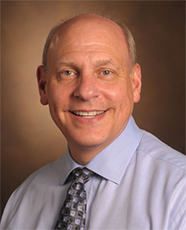 Professor Neil Osheroff from Vanderbilt University School of Medicine was a visitor to the Department of Pathology and Molecular Medicine, at University of Otago, Wellington. Professor Osheroff directs a research laboratory that has made seminal contributions to our understanding of how enzymes known as topoisomerases function, regulate the topological state of DNA, and serve as the targets for a number of widely prescribed anticancer and antibacterial drugs. In addition to directing his research program, he is committed to the education of future generations of health professionals and to the professional development of medical science educators.
Professor Neil Osheroff from Vanderbilt University School of Medicine was a visitor to the Department of Pathology and Molecular Medicine, at University of Otago, Wellington. Professor Osheroff directs a research laboratory that has made seminal contributions to our understanding of how enzymes known as topoisomerases function, regulate the topological state of DNA, and serve as the targets for a number of widely prescribed anticancer and antibacterial drugs. In addition to directing his research program, he is committed to the education of future generations of health professionals and to the professional development of medical science educators.
While he was visiting, he gave two talks on 20 and 24 May 2019. The first was a presentation on “Opportunities offered by curricular revision and integration for the career paths of medical science educators”, followed by a panel discussion. The second was a lecture on “Integrating biomedical and clinical teaching in the MBChB degree”, followed by a curriculum development workshop.
Opportunities offered by curricular revision and integration for the career paths of medical science educators
Abstract
Curricular revision and integration have profound effects on the identity of medical educators and their relationships with their department and university. Although curricular revision can be challenging, it offers a number of opportunities for career development and enhancement. This presentation will describe the evolution of the medical educator and the ramifications of curricular revision and integration on the career paths of these individuals. It will go on to describe the modern roles of the medical educator and highlight opportunities for career advancement and fulfillment.
Integrating biomedical and clinical teaching in the MBChB degree
Abstract
Physicians must have a strong understanding of the foundational sciences that underlie clinical practice. This basic science knowledge creates a framework for clinical knowledge, and enhances the ability to learn new information, relate new learning to past information, and problem-solve effectively. These abilities are key skills of adaptive expertise and are thought to represent excellence in clinical performance. Although most modern undergraduate medical curricula have successfully integrated clinical materials into the pre-clerkship curriculum, intentional integration of foundational sciences into the “clinical years” has proven to be a challenge. Effective integration of foundational and medical sciences requires a commitment to integration at the program, course, and session levels. This presentation will discuss the cognitive science that underlies integration and how foundational and medical sciences have been integrated across the undergraduate medical curriculum at the Vanderbilt University School of Medicine. It will address the development of an integrated curriculum, approaches for teaching foundational sciences in the pre-clerkship phase that enhance medical student learning during clinical training, and the incorporation of foundational sciences during active clinical engagement in the post-clerkship phase. Successes and challenges will be discussed.